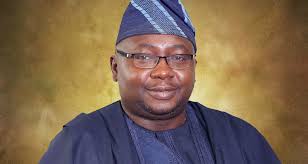Power Minister Adebayo Adelabu says Nigerians have largely stopped complaining about the steep rise in petrol prices due to the improved electricity supply, reducing their need for generators.
Speaking in Abuja on October 15, Adelabu addressed the public’s reaction to the recent hike in petrol prices, which saw fuel costs soar to over N1000 per litre in some regions, following an increase by the NNPCL.
Despite the price hike leading to increased costs of transportation, food, and essential goods, the minister suggests that fewer people are reliant on petrol to power their homes and businesses because of a more stable power supply.
“People no longer need to buy as much petrol as before for electricity generation, and that’s why the outcry isn’t as loud as it could have been,” Adelabu remarked. “If Nigerians were still heavily dependent on petrol-powered generators at N1000 per litre, we would be hearing far louder complaints.”
The minister also pointed to Lagos State’s initiative to phase out one million generators over the next year, a policy that aligns with the government’s broader goal of reducing generator reliance nationwide. “We aim to replace all generators as part of this initiative,” he emphasized.
Adelabu also acknowledged Nigeria’s slow progress in boosting electricity generation over the decades, lamenting that the country has only managed to add 2000 megawatts (MW) to the national grid since 1984. “Despite being a nation of over 200 million people, we are still celebrating reaching the 5000MW mark,” he said, pointing out the sluggish improvement in the country’s power infrastructure.
“When we took office, we inherited a system producing just 4000MW. We’ve now raised that to an average of 5000MW, with a peak of 5,527MW recorded on September 3. But this is far from enough,” Adelabu admitted, calling for urgent action to accelerate progress. “It’s disheartening to think it took us 40 years to add just 2000MW. But if the last best time was decades ago, the next best time to act is now.”











